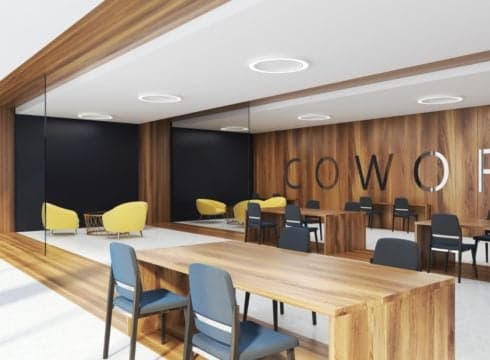Mainstream corporates are now the biggest demand drivers for flexible workspaces
Flexible workspaces is envisioned to have a market valuation of $45-50 Bn by 2022 in India alone
Flexible workspaces is a product of, and perfectly suited for this ‘New Work World Order'
Inc42 Daily Brief
Stay Ahead With Daily News & Analysis on India’s Tech & Startup Economy
‘Flexible First’ has become the keyword of modern workspaces looking to simplify its mode of operations to the best optimum possibility. Streamlined operations and a barrier-free workspace environment have become such essential features of present-day business landscape that not only startups and small enterprises, but mainstream corporates are now the biggest demand drivers for flexible workspaces, as per a recent survey by JLL.
Around 40 to 45% of the business opportunity ratio is taken by the mainstream corporate firms and large enterprises. Individual businesses and SMEs make up for about 35-40% while startup India accounts only for about 15 to 25%.
In India specifically, flexible workspaces are being sought after not only for their perceived employee-friendliness, but because they are by far the most cost-effective way of expanding across newer markets. In cities like Bengaluru, Mumbai, Gurgaon, Hyderabad etc., corporates such as Accenture, Amazon, GE, Boeing, Alibaba, IKEA, HSBC, PayPal, Verizon and Microsoft etc. are occupying a major share of co-working space.
In fact, commercial real estate, of which flexible workspaces is a major part, is envisioned to have a market valuation of $45-50 Bn by 2022 in India alone.
Flexible Workspaces: The Current Status
Flexible workspaces have today become probably the most visible part of the commercial real estate spectrum in India, with 15% bank lending to such projects till July 2019 as compared to only 4% the previous year. Even then, banks and NBFCs are not the primary investors to this ever-growing sector, as both national and international
Private Equity players having plugged in more than $3 Bn to the sector within the first nine months of this year, registering a 19% YOY growth.
With a plethora of professionals, seasoned veterans and young talent coming under the same roof, the shared workspaces are transformed into huge learning spaces where ideas are allowed to collide and create the sparks of innovation. In a country that boasts of the second-largest freelancer community in the world with 154 Mn+ freelancers and an extremely encouraging start-up scene, lean workspace models are here to stay, and for a long time.
Even enterprises across conventional industries like banking, insurance, manufacturing, etc. are also switching to shared workspaces to rehash themselves as new-age companies that walk step in step with the ever-changing business environment helping them attract new talent.
Dynamics Boosting Flexible Workspace Culture
Globalization of providers
Flexible workspace companies are modifying their operations and also scaling to new markets and territories hereby offering customers multi-global locations and international business reach. Networked buying power can prove itself to be a game changer as it is a powerful selling point and a primary differentiator when the competition is too thick and tight.
Niche Development
The major players in the agile workspace market are focusing all their creative efforts on developing a niche in an effort to distinguish the services that they offer from the competing brands. In addition, there has been a rising emergence of spaces that offer a specialized and custom niche facility to attract potential clients.
Current Trends
- A much-anticipated trend is the overall ‘outsourcing’ of office functions in absolution just like an IT or BPO function. This entire and all-inclusive outsourcing of workspaces is aptly proposed to be the third-largest revolution set to take place in the dimension of outsourced services
- The concise and consistent shift in the structure of the real estate industry is founded on sturdy and stable pillars and one can safely assume that it is here to stay
- That which was once a suave and fashionable strategic move for startups and SMEs predominantly is now a tried and tested, result-oriented, output increasing corporate and real estate blueprint policy
In Conclusion
According to Whelan, the prestigious American real estate bigwigs Coldwell Banker Richard Ellis (CBRE’s) Head of Occupier Research, the present-day real estate ecosystem is witnessing a fundamental transition in the very nature of expectations that organisations and their employees have from their place of work.
This shift is expected to evolve further down the line in terms of flexibility that aids growth and productivity, and suits the needs of current and future workforce.
We are definitely in the middle of a macro-level shift towards a new model of working, thinking and living which was unimaginable even two decades back. Flexible workspaces is a product of, and perfectly suited for this ‘New Work World Order.’
{{#name}}{{name}}{{/name}}{{^name}}-{{/name}}
{{#description}}{{description}}...{{/description}}{{^description}}-{{/description}}
Note: We at Inc42 take our ethics very seriously. More information about it can be found here.


